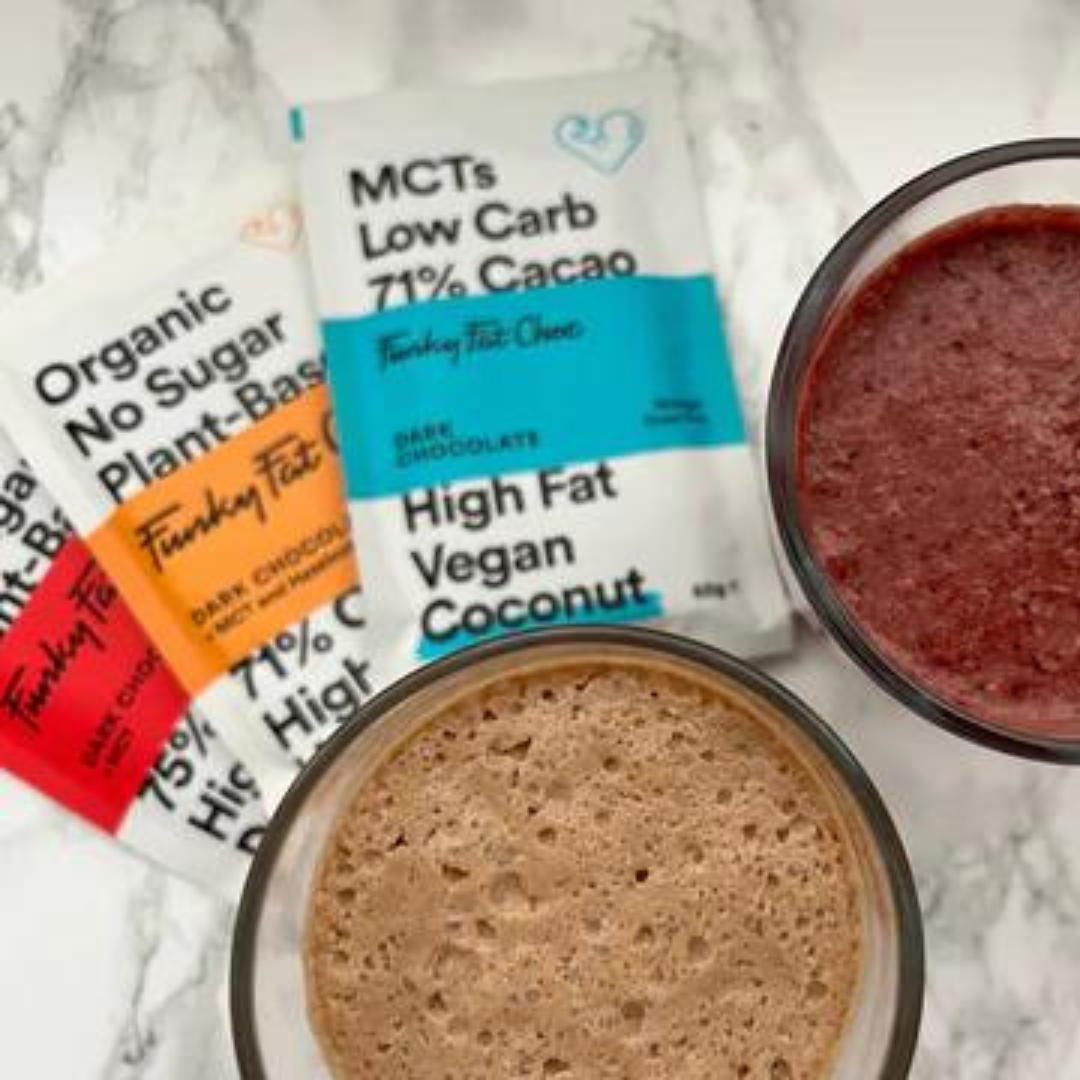Listen to full episode
Dr. Stephanie Estima is a chiropractic doctor with a special interest in metabolism, body composition, functional neurology, and female physiology. She grew up in a very holistic home and went out to do professional schooling to become a chiropractor. She always had a love for brain metabolism and brain health, she has always had the curiosity to know how we can optimize and function it. As Dr. Stephanie said, “It is an organ that we don’t normally see or care about. We usually care about how we look and what’s our skin like”.
Exercise and nutrition are very important to brain health, her whole life she has always been involved in some way or another in nutrition and fitness so it has all beautifully come together.
About 16 years later after working in private practice, she decided to close the clinic, move online and serve practitioners and women in a bigger way. Now Dr. Stephanie is a coach to other doctors, MDs, DCS and physical therapists. She teaches them about female physiology, and how we, as women, are different from our male counterparts. She also teaches some of the protocols that she, as a clinician, may consider to help increase her patient's success. She also has a nutrition program that is female-centric and suitable for a ketogenic diet as well as a program that helps women sync their menstrual cycle to the way they eat.
What is the Estima diet?
There are two phases to it. Phase one has a female-centric ketogenic focus and then phase two, is once you are already metabolically flexible. That’s when she introduces the menstrual cycle and starts thinking about how you can eat to match the hormonal environment that we, as women have because it changes every day. There are very different hormonal profiles in a woman that is in her reproductive years. The way they eat and work out changes.
For people that don’t understand how food is related to hormones and how they are connected, what are hormones? What do they control? What do they affect?
Hormones are everything, they are how you feel, how you sleep, how you partition fuel and how you recover and grow muscle. They are involved in everything.
For women who are in their reproductive years, in school, there were only one or two awkward days where they were taught about their menstrual cycle. Many women grew up with a lack of understanding of how their reproductive cycle specifically, and their sex hormones (testosterone, oestrogen, etc) can impact their mood, their sleep and appetite.
One of the most common things she sees in terms of hormonal dysfunction is something called PCOS (polycystic ovarian syndrome), which is characterized by an excess of androgens or an excess of testosterone, this means, that there is too much testosterone in the female body and it is either being converted to something called dihydrotestosterone (6 or 7 times more potent than regular testosterone) or converted to oestrogen.
What she sees in a lot of women that suffer from PCOS is that there is a disfunction with the foods that are often hyperinsulinemic. This happens when a hormone called insulin (released by the beta cells of the pancreas) in response to carbohydrates or amino acids elevates insulin levels. Having too much insulin around will directly affect how much testosterone you have. So when you eat foods you are affecting in some cases, how much testosterone you might have.
Another common example of women that can relate to this is something called oestrogen dominance, which means that there is too much oestrogen at a specific time of the menstrual cycle, it is usually after they have ovulated, this is called the luteal phase. You can modulate and bring oestrogen levels down through foods that you eat, for example, when you are consuming foods that are rich in the supplement diindolylmethane(Dim), such as green leafy vegetables. When consuming a lot of these, the total amount of oestrogen is reduced. These green leafy vegetables have also sulfur fain, which is also going to help metabolize the oestrogen better.
These are the most common things she sees: women that either have too much testosterone ( hyperadrenergic) or are hypoestrogenic. You can modulate both of those by either, in the first case, pulling back down insulin secretion and we can do that by consuming a low-carb diet, and on the other side, consuming more green leafy vegetables.
The nutrition composition of the diet, and even the timing and the food combination that you do can also have really big effects on your hormones. The order of the macros that you eat also has an effect on how much glucose or how much insulin you will secrete.
So, the ideal combination when eating is to start first with leafy greens, then proteins and fats and then save the carbohydrates for last. With this, the postprandial glucose will be much lower, than if you had, for example, rice first, then avocados and then meat. This is another way through our nutrition that the hormones can be influenced.
What are the short-term and long term benefits of being hormonally stable and what would happen if one day you eat something that knocks you out of that stability?
Dr Stephanie’s philosophy around health is that there are a lot of benefits in creating health but at some point, it’s fun to just, like a bank account, spend it. There are days when you have a wedding, a party or you are just meeting up with some friends that following your diet is quite impossible. It’s not ideal because it does affect our hormones but if you are doing the right thing 80% to 90% of the time it doesn't matter. Women tend to be very rigid and have a narrow definition of what health is, but if you do have that glass of wine you don’t have to worry because you have previously established a lot of the behaviour goals that are going to allow you to get back on the “bandwagon” the next day. It is important to not get frustrated by those behaviours and to remember no to beat yourself up about it.
If you are not perfect all the time it is not a big deal. Especially when you want to balance the idea of pleasure and having fun and having a healthy relationship with food.
Following the Estima diet, what are the long and short term benefits of being hormonally stable.
The type of woman attracted to Dr.Stephanie’s work is usually very driven, a type A personality (just like her) and is usually in peri-menopause ( 35-55 years old).
When you are eating in alignment with your hormonal alchemy, you will have better sleep, your focus is going to be better, and you won’t have brain fog. When you are eating a higher fat diet, at least initially, you can overcome a lot of hormonal derangement which is what a lot of women are suffering from. Most women have something called leptin resistance. Leptin is a hormone that makes you feel full. When you are consuming a high-fat diet which is very satiating because fat has a higher caloric count than protein and carbohydrates, you can overcome that hormonal problem of always feeling hungry. Another benefit is that you can go hours without eating or needing to snack because you are able to tap into your own fat source for energy.
What’s your book ‘The Betty Body’ about?
It goes through the most common hormonal derangements that women who are between the ages of 35- 55 will encounter. In her book, Dr. Stephanie talks about nutrition intervention, fitness, involving cardio and lifting heavyweights. To be putting on muscle mass is very important and helps you regulate your hormones. Muscles are basically glucose disposal agents, they soap up all the glucose in the bloodstream for their own use. The more muscle you have, the more carbohydrates you can have, but also, it helps with your metabolism and your body composition as well.
When we think of this over the course of the menstrual cycle, testosterone is almost at the same level all the way through it except for week two. Week one is our bleed week that’s when we are on our period. Week two is pre-ovulatory week, which is when testosterone levels go up and that, for women is usually when orgasms are stronger and their receptivity to having sex with a partner is higher.
For week two, when talking about fitness, Dr Stephanie loves to encourage women to be lifting as heavy as they possibly can, from three to seven reps. The weight should be heavy enough that you can not do more than five reps, seven at the most. The reason behind this is that you are actually trying to break down the muscle and as it grows back when it's repairing, it grows back bigger. During this pre-ovulatory week, you have to try to lift heavy. In the other weeks of your cycle, you still have to be lifting and lifting heavy weights but the rep ranges changes to eight to twelve reps in week 1 and 3. In week 4 (right before the period begins), a lot of women feel very bloated, so the reps are going to be between fifteen to twenty, the reason for that is because as you are contracting the muscle, every time it contracts it releases miokinds, which help reduce inflammation. Over the cycle, you are still lifting all the way through but the modulation changes.
For the cardio, she finds women do too much of it and for that, sacrifice lifting. She likes for women to be lifting at least three times a week, ideally four, and then do cardio. It brings a lot of stress to your body to be doing cardio every day, you also have to put on some fat.
Can you give us some tips on where to find you?
- Podcast: “Better with Dr. Stephanie”. She helps women understand how they function and who they are to adapt to the modern world they are in and how to respond to their internal environment ( hormones) and external environment.
- Instagram: @dr.stephanie.estima
- Her book: The Betty Body




Leave a comment
All comments are moderated before being published.
This site is protected by hCaptcha and the hCaptcha Privacy Policy and Terms of Service apply.